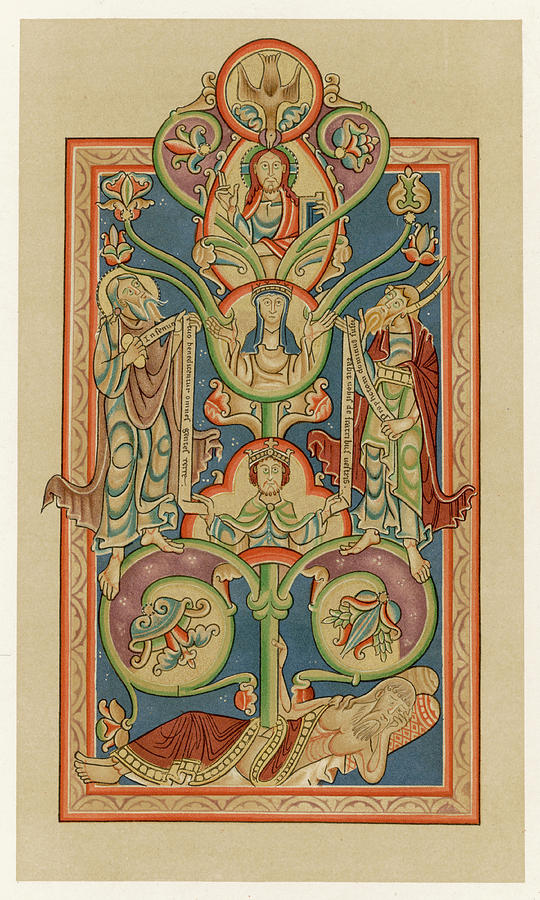I’m always amazed how often the structure of Biblical episodes have a liturgical structure. What do I mean by a “liturgical structure”?
Well, consider what the liturgy is. (1) Jesus is present (by invocation); (2) we acknowledge our unworthiness and “beggarly” status; (3) we beg for mercy; (4) we’re healed; (5) we glorify God; (6) we’re in joyful communion with Jesus. Old Testament worship was structured along these lines; specific episodes in the lives of the saints (for instance, Isaiah in Isaiah 6) are framed this way; and most of the accounts of Jesus healing someone follows this pattern.
Most certainly it is true in this week’s Blind Beggar Gospel.
He first hears the word that Jesus is passing by. This is faith arising from the preaching of the Word. He calls upon Jesus’ name. This is invocation. He begs for mercy. This is Kyrie or Confession of sins. He gets healed. This is absolution. He glorifies God and follows Jesus. This is the Gloria in Excelsis and Holy Communion. His confession that Jesus is the Son of David would parallel the confessing of the Creed. It’s all there!
People often like to make a distinction between formal and informal worship. Worship must be formal, because we have a formal Lord, that is, one who “took the form of a bondservant.” Faith, as we have been contemplating, is not an end in itself, anchored in the misty projections of self. Faith has the exact contours of the formal Lord which is its object. Faith, therefore, is formal.
The blind man didn’t cry, “Please, oh universe, take this blindness away.” No, it had formal reference points – the idea of a messiah, an anointed one, a son of David, and all the host of words from the Old Testament carrying those ideas. Thus, the blind man’s faith had clear doctrinal outlines, even as his prayer “Have mercy on me” had a formal structure.
The Church’s historic liturgy was not a bunch of monks in the middle ages – the creative worship team of the 1300s – getting together and praying the Holy Spirit might move them to have uplifting worship that one week in 1347. No, the Church’s liturgy is simply what happens when faith in a formal Lord takes shape.
Where is Jesus right now? What’s He doing? How are we related to Him in this state of being? Those are really the questions the liturgy answers. A teacher of mine once said, “The best questions are the ones for which the Lord has answers.” And all those questions have answers which the liturgy answers.
Jesus is at the right hand of God interceding for us. We leave our sins behind and commune with Him. The liturgy from beginning to end simply fills in the details. One example. We leave our sins behind when we confess them. What happens when one sinner repents? The angels rejoice. What are the angels singing? Two places in the Scriptures answer this question, Isaiah 6 and Luke 2. They are singing, “Glory to God in the highest” and “Holy, Holy, Holy.” These two songs serve as the basis of the canticles, Gloria in Excelsis and the Sanctus. These canticles are sung because we sinners are at church!
Oh, and if Jesus is present – which He is because He promised to be – but also sitting at the right hand of the Father, then of necessity we must be with Him at the right hand of the Father. We’re in heaven! So, these two canticles not only confess that we are forgiven sinners over which the angels are rejoicing, but that we are in heaven!
Formal elements of a formal worship of a formal Savior. The Kyrie, the prayer of the blind beggar, is an incredibly powerful and beautiful moment of the liturgy. Like we contemplated before, the Kyrie weaves through the whole service. This prayer, this prayer of a forgotten, pathetic blind beggar, whom we know as Bartimaeus, has been put on our lips, joining us to him, so that Jesus can say to us as well, “Your faith has made you well.”
Why would anyone cut out the Kyrie? If it was powerful enough to have Jesus proclaim Barimaeus’ name throughout all time – “If you confess my name before men, I will confess your name before my heavenly Father” – will it not do the same with your name?







